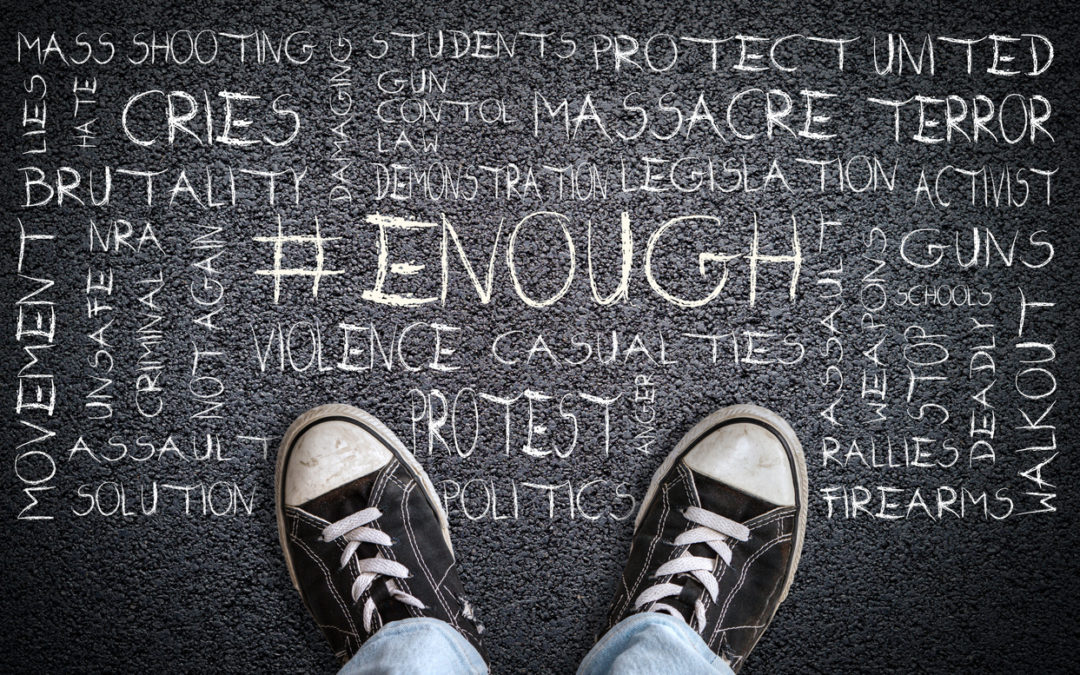In a span of just one week, there have already been two mass shootings that have gained national attention. The killings in Georgia and Colorado are the latest in what seems like a never-ending stream of stories about innocent people getting killed senselessly and violently. Now, in what has become a national routine, political lines are already being drawn. And they are being drawn on the same old line: gun control.
It is hard to not take a breath of exasperation whenever we see the same cycle play out repeatedly in the aftermath of a mass shooting. It starts when the seemingly dormant, yet perpetually antagonistic factions of gun policy resurface in mass media and re-ignite their unending war against each other. As the public’s attention on gun violence once again reaches a critical mass, public officials then proceed one by one to take up gun policy as their new priority. Depending on their persuasion, some leaders may say that there are not enough guns to protect the innocent, while others may say that gun ownership is out of control. The debate intensifies and captivates the nation for weeks or months on end until finally, it reaches a crescendo that ends in nothing but the same, inevitable stalemate that has become the hallmark of almost every mass shooting. The problem never gets solved, national discourse moves on to other news, while innocent people never get the justice they truly deserve.
It does not have to be this way. We, as a society, need to re-evaluate how we approach mass shootings. Gun policy is certainly an issue worth looking into, but it is not THE main issue in these cases. Perhaps we need to start looking at something else. Talking about guns just because guns factored into a news story addresses only the symptom of a major problem, but do not address the true causes of mass shootings.
Public discourse is important. But what is equally important is the content of such discourse. Mass shootings are not and should not be mainly about gun control. Instead, mass shootings must be seen as opportunities to discuss ways on how to address the country’s mental health crisis. Rather than worsening the fault lines of national political dialogue, our leaders can instead find more common ground in improving our nation’s mental health infrastructure. Clearly, these mass shootings are psychotic acts of violence. Guns are the tools that these people use to cause destruction, but it is the mind controlling these guns that we must really be focusing on.
In the medical field, a typical psychiatric assessment involves asking people if they are thinking of harming themselves or others. An affirmative response triggers a cascade of interventions that most likely will lead to a ‘5150’ or an involuntary hold until a person is no longer deemed a danger to self or others. The desire to harm others is so serious that health professionals are trained to carry out a set standard of procedures to protect people from imminent danger. In these situations, there is no debate. There is no time to waste. The person deemed to be a danger is promptly treated and given the attention they deserve. In doing this, the medical community sees thoughts of self-harm or harm to others as an acute crisis, just like any ailment or disease that warrant a visit to the hospital.
If society can give mental health issues the same sense of urgency and level of seriousness that it gets from the medical community, we may be able to find meaningful solutions and prevent these atrocious mass shootings in the future. Our leaders can work together towards allocating more resources towards identifying and assisting at-risk individuals and groups. For instance, hiring more school counselors and other types of mentors who are trained in psychiatric disorders may be able to curtail the possibility of school shootings if early intervention is provided for students that are showing signs of antisocial behavior. Companies and organizations can also be incentivized to provide robust training programs that promote understanding and tolerance of cultural differences. And instead of relying completely on police to deter criminal behavior, communities can invest some resources towards social workers who are trained to diffuse aggressive behavior peacefully and potentially help would-be deviants towards a better path in life.
Mental health issues are not just a medical issue. They are a vital social issue that warrant our utmost attention. Mental health issues permeate the fabric of our collective soul as a nation whether we recognize it or not. The problem is, if we continue to ignore them, they can and will fester like an untreated, open wound.
- Careers for Nurses Who Like Working in the Community - July 14, 2021
- Mass Shootings Keep Happening, And We Keep Getting It Wrong - March 24, 2021
- How Nurses Can Promote a More Culturally Responsive Healthcare System - March 12, 2021



